“Squid Game” Season 2 heads back into the arena

NPR invited me back on their Pop Culture Happy Hour podcast to discuss the second season of the Korean series “Squid Game.”
Journalist, Author & Syndicated Columnist

NPR invited me back on their Pop Culture Happy Hour podcast to discuss the second season of the Korean series “Squid Game.”

I was one of the speakers at the University of Southern California’s “Behind the Scenes of K-pop” — an all-day symposium featuring insiders and experts who fostered conversations about the art, culture, business, and the future of K-pop.

I was quoted in today’s Huffington Post about how Korean diaspora are treated differently than other tourists in South Korea. I shared my story about visiting the DMZ.

NPR’s Ayesha Rascoe speaks to syndicated columnist Jae-Ha Kim about the scandal that led to the death of beloved South Korean actor Lee Sun-Kyun. Note: This conversation has mentions of self-harm.
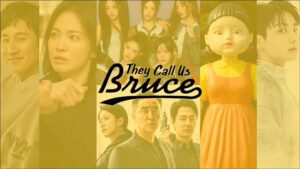
I was the first guest of 2024 on Phil Yu and Jeff Yang’s podcast, “They Call Us Bruce.” We discussed K-dramas, BTS, Lee Sun-kyun’s tragic death and how annoying it is when non-Asian members of the media co-opt our stories.

There is a lot to unpack in “Castaway Diva.” On the surface, it’s about a teenager who has been trapped on an island for 15 years, is rescued, and pursues her dreams of becoming a K-pop idol. And that is an interesting enough premise as it is. However, the real thrust of this K-drama is the long-lasting ramifications of abuse, even after the victims have grown up and have long been separated from the abusers.
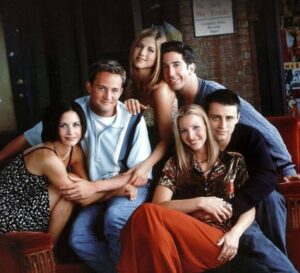
I’ve always been one who has loved TV and never understood people who said, “I don’t watch TV.” I love TV and wish I had more time for it. I really don’t watch much TV these days — not because I don’t want to, but because of lack of time. When I do have an hour or two to spare, I watch K-dramas (Korean Dramas). They’re just more interesting to me now.

Ayesha Rascoe speaks with journalist Jae-Ha Kim about the popularity of Korean television dramas on streaming services and her top recommendations.
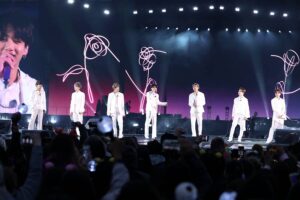
Boy bands generally don’t get a lot of respect from journalists regardless of what language they speak. But if BTS was a white boy band singing in English, I’m positive their songs would get more attention and radio play.
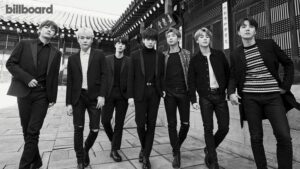
I’m most grateful that Asian American children today have pop culture role models who look like them. It’s so important for children to see themselves represented. When I was my son’s age, there were no famous artists in the U.S. who were talented, young, handsome, great role models AND Korean! I’m so happy that he has BTS to listen to, laugh with and look up to.

“Having been raised using Korean in her family, a Korean American journalist said that she still struggled to speak Korean fluently, and this experience led her to question why Korean entertainment writers and consumers failed to question improbable stories, such as that of ‘Vincenzo,” Lee Kyung-eun — the director of Human Rights Beyond Borders — wrote in her OpEd piece. The journalist she is talking about … is me.
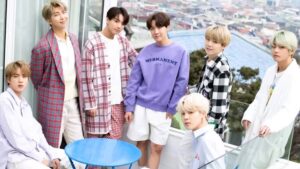
Did luck and timing play a part in BTS’ success. It’s important to remember that luck isn’t just something that happens while you’re sitting around doing nothing. As Jungkook said in an episode of “Burn the Stage,” “We’ve been lucky, but we worked hard for that luck.”

NPR asked me to share my thoughts about the Korean series, “Squid Game,” for their Pop Culture Happy Hour podcast. We discussed the controversy about the subtitles, whether the Western actors in Episodes 7 lended anything to the series and whether a Season 2 would be a good thing or not.

The New York Times interviewed me for their piece about product placement (like Subway!) in K-Dramas.

The South China Morning Post recently interviewed me to chat about BTS and the upcoming Grammy nominations: “If BTS aren’t nominated this time, it’s not because of their lack of talent,” said Jae-Ha Kim. “All it will mean is that the Grammys are as clueless as they were in 1989, when they handed the trophy for best hard rock/metal performance to Jethro Tull, rather than Metallica.”

MTV News interviewed me for this piece on how differently “Parasite” director Bong Joon-Ho and BTS are viewed by critics.
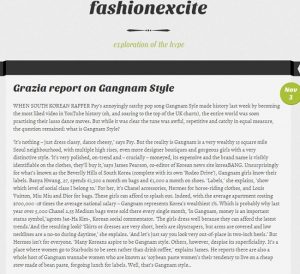
Too bad they didn’t quote me correctly. The sentiment is there, but this isn’t exactly what I said. How do I know? They asked for my answers via e-mail. And I saved that e-mail.

South Korean rapper PSY’s “Gangnam Style” video has more than 200 million YouTube views and counting, and it’s easy to see why. No Korean language skills are needed to enjoy the chubby, massively entertaining performer’s crazy horse-riding dance, the song’s addictive chorus and the video’s exquisitely odd series of misadventures.

“People are surprised — bewildered, really — at PSY’s popularity abroad,” says Susan Kang, chief evangelist for Soompi.com, the mammoth online site dedicated to Korean pop music. “You have people saying, ‘We have all these beautiful guys and girls that have tried to break through to the U.S. market with little success. So why PSY?’ But of course they are embracing it to the fullest, and it’s causing a renewed interest in and respect for his music.”